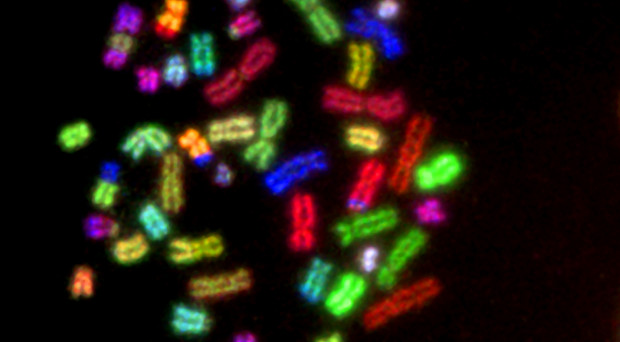
Genotype is only a part of an organism’s overall being. Environmental factors can be a significant contributor to phenotype, as demonstrated by differences observed in identical twins. Diseases such as skin cancer from overexposure to ultraviolet light also show the impact that the environment can have on our gene expression.
Covering the area of environmental mutagens, Genes and Environment, the official journal of the Japanese Environmental Mutagen Society, has published its first articles today with BioMed Central.
The effect of toxicological agents on genes is an area that warrants further research as a major public health issue
The journal publishes articles across a broad range of topics including environmental mutagenesis and carcinogenesis, environmental genomics and epigenetics, molecular epidemiology, genetic toxicology and regulatory sciences.
One of the above areas that I find particularly fascinating is epigenetics: the study of heritable changes affecting gene expression without changing the genetic sequence. This can involve external factors that cause chemical changes to occur in our genomes, such as environmental mutagens.
It is well known that radiation and certain chemicals can cause genetic mutations that lead to cancer, aging etc. These mutations often change the genetic sequence and consequently modify gene expression, such as by deactivating a tumor suppressor gene, leading to uncontrolled cell division.
Research into epimutations is also a rapidly growing area. These changes may involve modification of DNA bases and histones, such as methylation, ubiquitination or acetylation. A recently published systematic review in Clinical Epigenetics looks at environmental chemicals and DNA methylation in adults. While a linkage between chemicals such as cadmium, lead and mercury, and epigenetic marks has been identified in several studies, the review concludes that the current evidence is not sufficient to provide inference. This is due to differences across studies and limited sample sizes making it difficult to compare studies and to evaluate sources of heterogeneity.
In short, the effect of toxicological agents on genes is an area that warrants further research as a major public health issue. In particular, pollution in Asia is a growing concern.
Open access (OA) is without a doubt making strides in Japan
In the launch editorial for Genes and Environment by Professor Takashi Yagi (Osaka Prefecture University, Japan), Yagi explains that many Asian countries are facing various issues regarding environmental pollution, mainly due to rapid economic expansion. While some countries have experienced this growth in industry for many years, others are relatively new to it and are experiencing similar health issues. This is certainly an opportunity for researchers in neighboring countries to learn from each other.
While Yagi’s editorial raises clinical and societal issues such as carcinogens, allergens and occupational health, there is of course no reason why countries should not also collaborate on basic science that can be used to advance overall knowledge of gene–environment interactions.
Genes and Environment now joins several other Japanese society titles publishing with BioMed Central, including Journal of Physiological Anthropology, Journal of Intensive Care, Zoological Letters and Journal of Pharmaceutical Health Care and Sciences.
Open access (OA) is without a doubt making strides in Japan, as discussed in a recent blog featuring BioMed Central’s Executive Vice President Deborah Kahn interviewing Yuko Nagai of the Zoological Society of Japan.
In this blog Nagai gives an inside perspective into OA in Japan, including the challenges it faces and changing researcher habits. While Nagai acknowledges that OA is underdeveloped in Japan and that there lacks a general drive among scientists to publish in OA journals, it seems that discussions regarding OA mandates and funding article-processing charges may well be on the horizon.
Sam Rose
Latest posts by Sam Rose (see all)
- Raising funds for genetic diseases - 23rd September 2016
- The Epigenetics and Chromatin Clinic - 9th November 2015
- Resurrecting one of the oldest genetics journals - 23rd October 2015
2 Comments